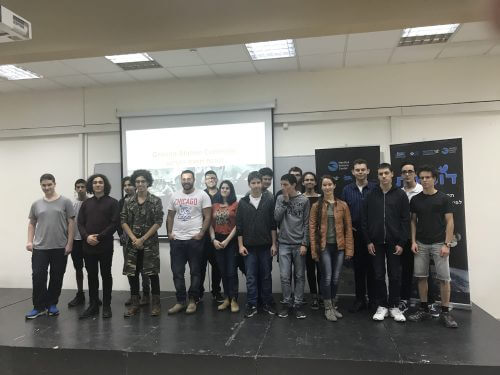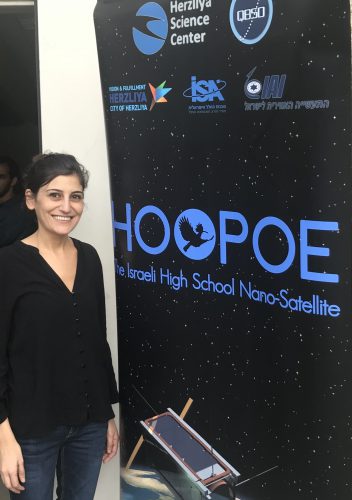This is what Sharon Mashal, coordinator of the satellite trend at the Herzliya Science Center, said in an interview with the scientist website during an event where students from Herzliya and the Negev presented the progress in the development of satellite systems

At the Science Center in Herzliya, whose students previously launched the two Dokifat satellites, are now working on the construction of the third satellite in the Dokifat 3 series, a nano-satellite of U3 size that will be used as a photography satellite. Last week, the planning survey meeting was held in Herzliya, where the students presented the progress of the development of the satellite systems.
As I recall, Dokifat 1 has been in space for four and a half years, and even Dokifat 2, which was designed to rub against the upper atmosphere, is still in orbit a year and a half after its launch.
According to Sharon Mashal, coordinator of the satellite program at the Herzliya Science Center and project coordinator, Dokifat 3 will already be part of a fleet of satellites that will be built by school students all over the country, as part of a program of the Israel Space Agency. "Each school will build one satellite, they will have a common protocol and they will fly in a constellation - constellation. Each school will build a satellite for a different task - photography, communication and more. In addition, students at Tel Aviv University will build two satellites as part of the new Center for Space Engineering and Small Satellites that was recently established at Tel Aviv University. "
"At the meeting are the teams of the schools that started the program. Today's meeting deals with the state of the software and in the next step we will check the readiness of the ground station. We are working on unique reception systems for Dokifat 3 and are also preparing the satellite for testing the environmental conditions and, of course, for the launch. The work is divided between the students of the Herzliya Science Center and the students of Shaar HaNegev. In each of the centers, different teams work, dedicated to certain tasks out of the total number of tasks in the project. However, there is ongoing cooperation between the students from Herzliya and students from the Negev Gate. Once every two months we meet for review meetings, once in Herzliya and once in the Negev Gate."
How is the collaboration carried out?
Question: "There are two ground stations and two clean rooms. The satellite has been traveling between the two schools for the past few months, a period in Herzliya and a period in the Negev Gate. Each of the teams does its own tasks whether it's uploading software or testing the hardware. The students face engineering challenges like in industry. Many times even we (the instructors) don't know what the answer is and need to explore it together with the students. The team of mentors consists of experienced engineers from the space industry and academia who all lend a hand and take part in the project, they guide the students and help them gain knowledge and experience. Even the older students are slowly becoming mentors to the younger ones and the knowledge is thus passed from generation to generation and we have a wide knowledge heritage."
"The students of Shaar HaNegev live in a difficult reality and despite the difficulties they face, they regularly come to the laboratory and prove that even under the threats of rockets and incendiary balloons it is possible to have a groundbreaking scientific educational program."

When did you start working on Dokifat 3?
Mashal: "We started working on the development of Dokifat 3 about two years ago. There are students who are already in their third year in the program, working together with students who came last year and this year. Our goal is to preserve the heritage in the school so that continuity is created. That it won't be a project that starts, ends and that's it. Dokifat 3 is a very complex project because of its dedicated payload."
More of the topic in Hayadan:
- Dokifat satellites brought the Science Center and Herzliya Municipality the Marco Polo Society Award
- "We built a training system in which the graduates train the young people entering the Dokifat 2 project"
- Tel Aviv University is establishing a center for small satellite technology
- Exclusive: "Israel 70" project - launching a group of 70 satellites into space to mark the 70th year of independence for the State of Israel.
